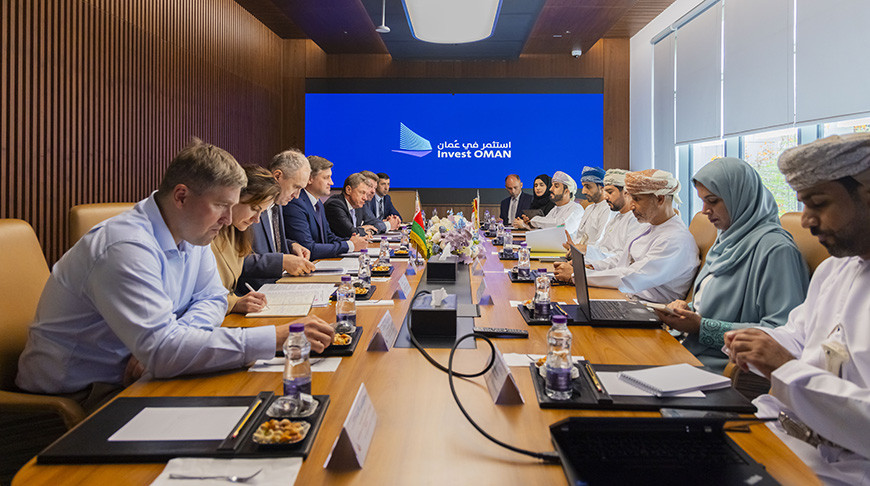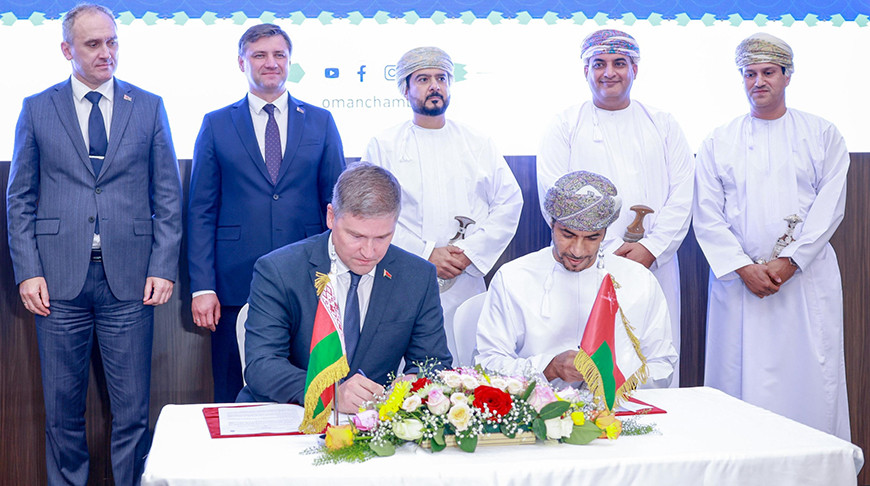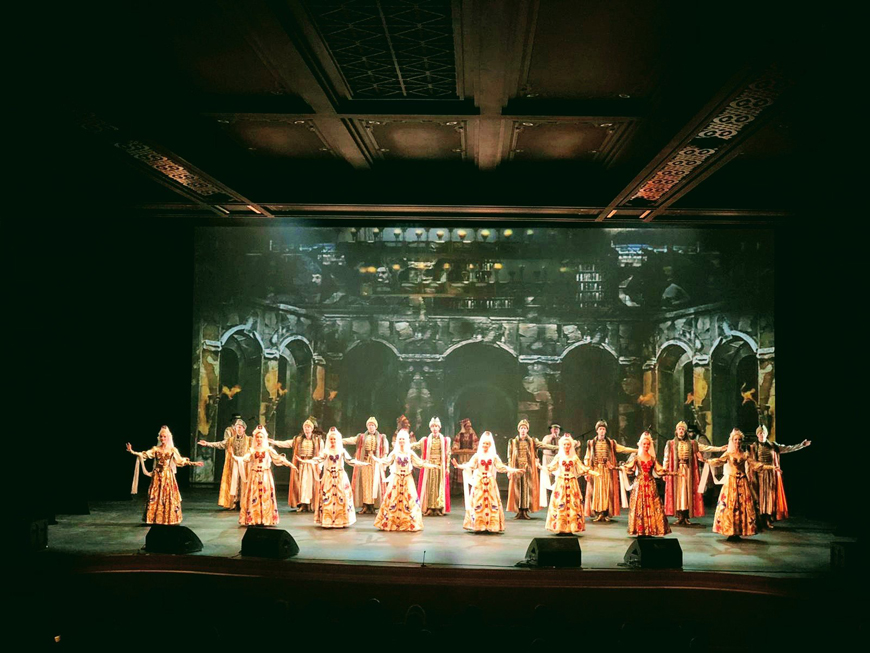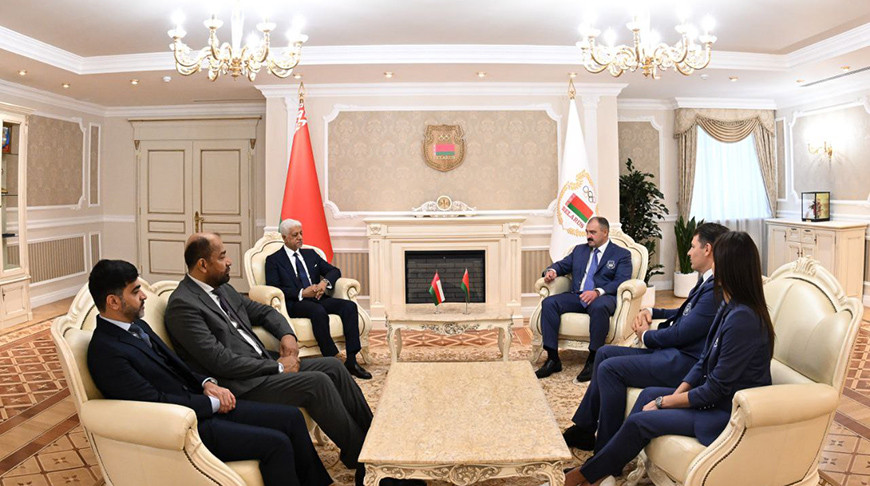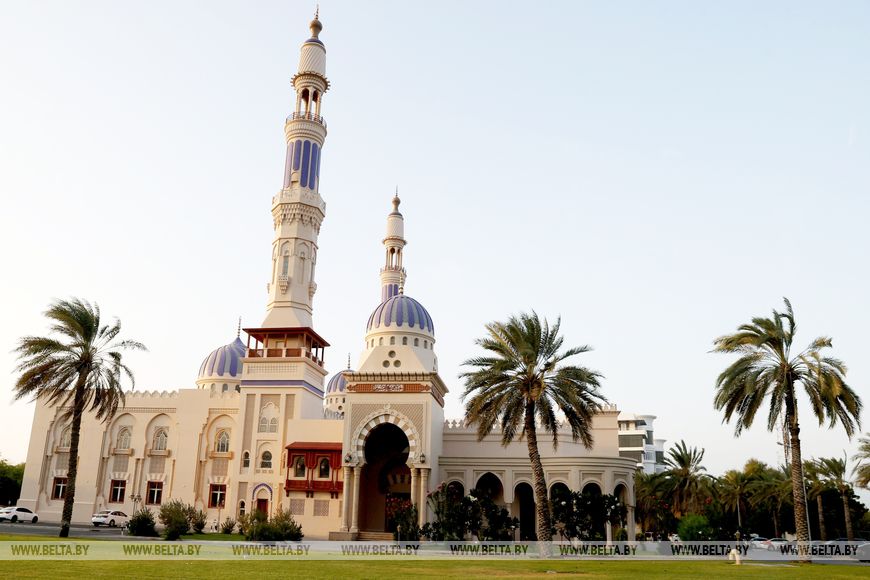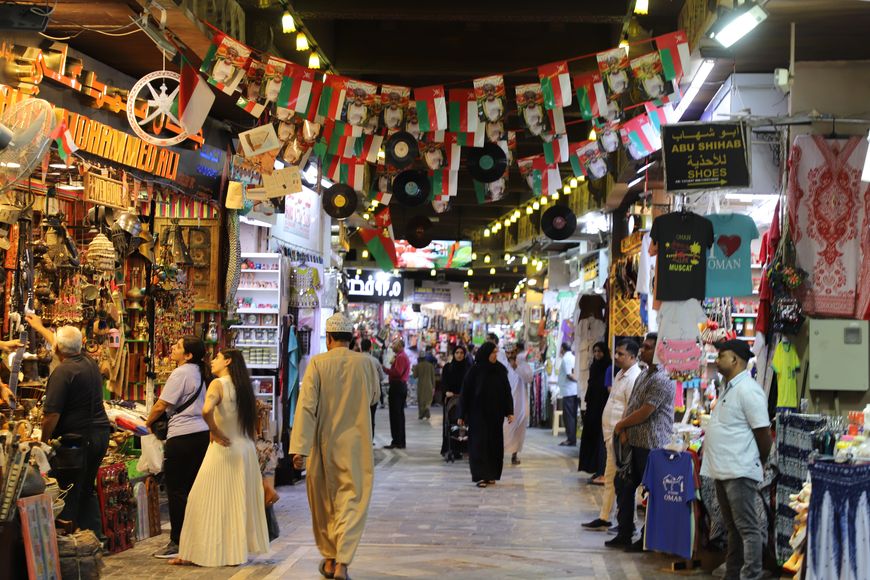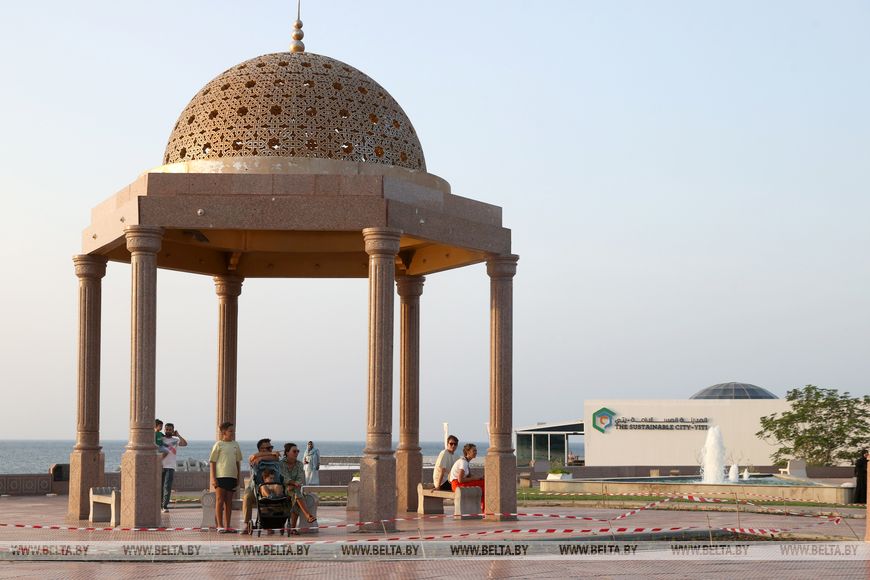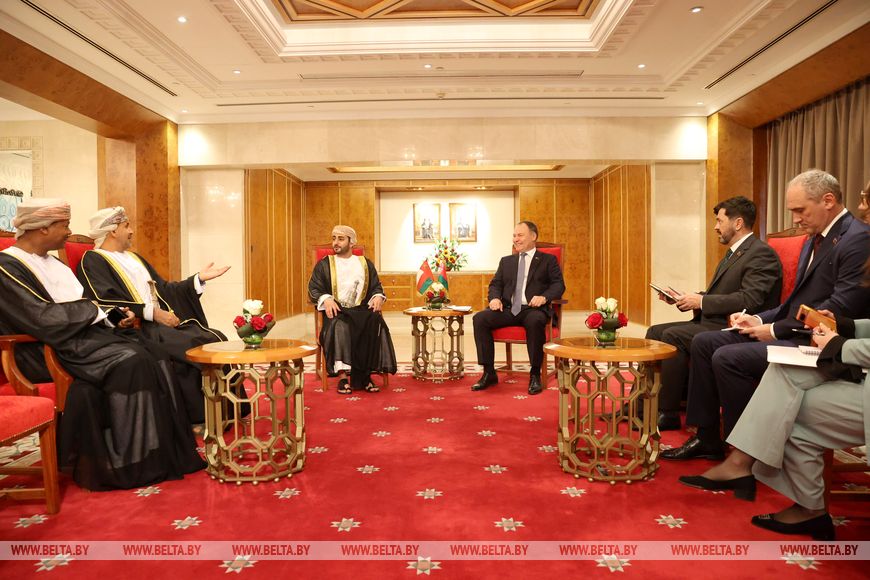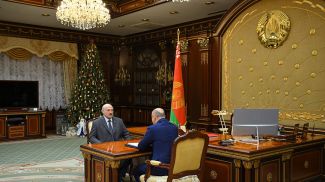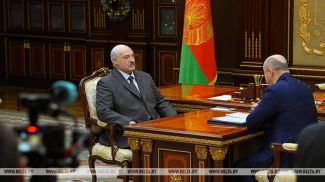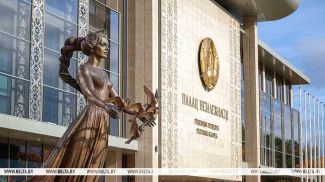
Regular visits of Belarusian President Aleksandr Lukashenko to Russia and other CIS countries are no surprise to anyone. Historically, the traditional partners account for the lion's share of Belarus’ cooperation since the countries are bound by common politics, economy, security, and humanitarian cooperation.In recent years, this has also included China. In multilateral terms, Belarus maintains active foreign policy efforts in such large and influential international associations as the SCO and BRICS. Despite sanctions and external pressure from the collective West, Belarus is only strengthening its international cooperation, systemically expanding the number of partners. Belarus has quite concrete interests and positions in Asia, new partners in Africa and Latin America.
Aleksandr Lukashenko is a fairly frequent guest in the Greater Middle East, and has brilliant relations with many leaders of the region. The United Arab Emirates, Qatar, Iran, Pakistan, Egypt...The list can go on, but it definitely includes Oman, with which Belarus has had friendly relations for more than 30 years. It seems that now is the right time to raise cooperation with this country to a new level. It is for this purpose that the Belarusian head of state has gone to Muscat for talks, and this is the second high-level visit to Oman in history.
The first visit of
the Belarusian president to the Sultanate of Oman took place more than 17 years
ago, on 14-15 April 2007. At that time, together with the then Sultan Qaboos
bin Said Al Said, the parties identified a list of key areas for cooperation.
“We are doing everything to represent Belarus worthily in Oman,” Aleksandr
Lukashenko emphasized.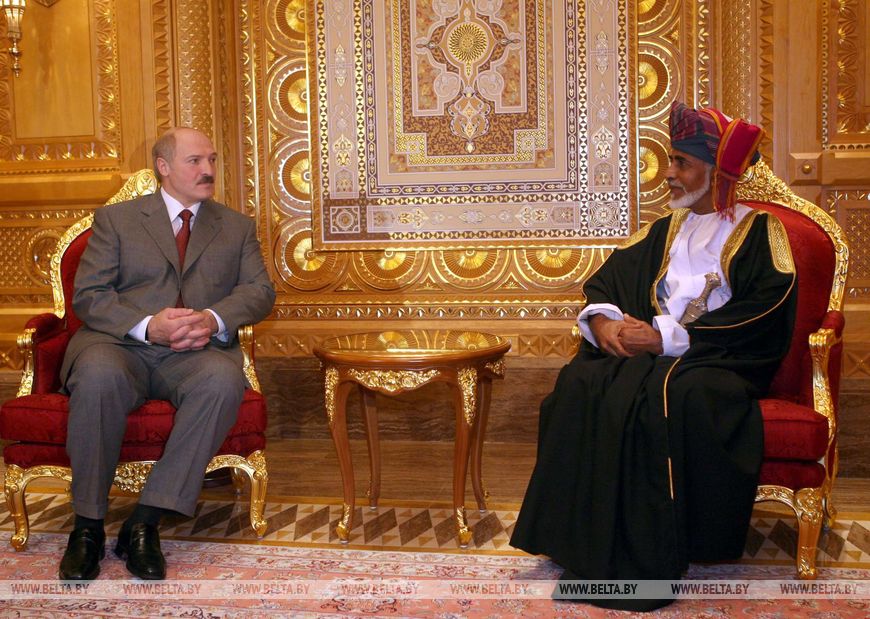 The task was to create a solid regulatory framework for the development of trade and economic relations. Already during the first visit, the parties signed an agreement on avoidance of double taxation and prevention of fiscal evasion, a cooperation agreement with the Chamber of Commerce and Industry of the Sultanate of Oman. The mayors of the capital cities discussed the prospects for signing an agreement on establishing ties between Minsk and Muscat.
The task was to create a solid regulatory framework for the development of trade and economic relations. Already during the first visit, the parties signed an agreement on avoidance of double taxation and prevention of fiscal evasion, a cooperation agreement with the Chamber of Commerce and Industry of the Sultanate of Oman. The mayors of the capital cities discussed the prospects for signing an agreement on establishing ties between Minsk and Muscat.
At present, the legal framework of bilateral relations already includes a dozen and a half documents. Working groups on cooperation have been set up in the parliaments of both countries. The Belarusian-Oman Business Cooperation Council has been established and has held several meetings; and bilateral political consultations are held. Since 2007, a number of significant high-level visits have taken place.
The development of relations with Oman was a logical step towards building a more active dialogue with other countries in the region. At that time, the Belarusian leader explicitly said that he had received certain information about Oman and the country's opportunities during his visit to the United Arab Emirates and meetings with the UAE leadership.
Among the attractive factors were the country's growing domestic market, the availability of significant investment resources, and opportunities for cooperation in education.
The Sultan of Oman also expressed interest in developing cooperation with Belarus. Even then, the state clearly saw the need to diversify the economy, because hydrocarbon reserves, which generate the lion's share of export revenues, are generally not infinite.
It is worth mentioning another event. In September 2016, Aleksandr Lukashenko met with representatives of the business community of the Sultanate of Oman in Minsk. “I would like to emphasize that we consider Oman as one of the promising trade and investment partners of Belarus in the Gulf region. Belarus is ready to develop relations with your state in all areas,” the Belarusian leader assured the businessmen.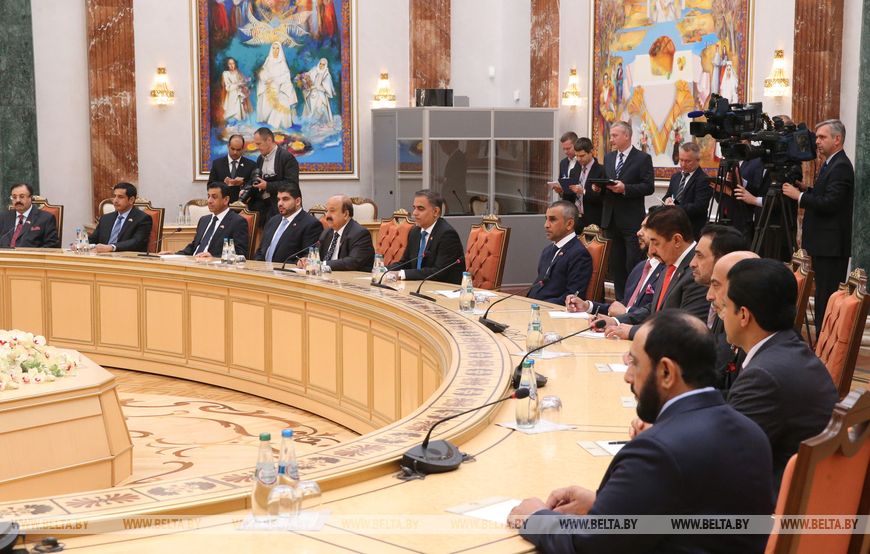 For example, the head of state then expressed readiness to develop investment cooperation, to supply various machinery to Oman and to set up joint ventures in Oman. In general, hotel business, agriculture, and others were outlined as promising areas of cooperation.
For example, the head of state then expressed readiness to develop investment cooperation, to supply various machinery to Oman and to set up joint ventures in Oman. In general, hotel business, agriculture, and others were outlined as promising areas of cooperation.
Nevertheless, despite successes in some areas, trade and economic cooperation has been much more modest than it could have been. After 2020, the situation was aggravated by the pandemic, economic turmoil in the world and sanctions.
Therefore, it is logical that Belarusian-Omani relations needed revision and resetting. This process was started at the beginning of this year. Accepting credentials from the ambassador of Oman in mid-February, Aleksandr Lukashenko said: “Your country is one of our most important partners in the Middle East. We should reinvigorate contacts and cooperation. You have a beautiful country, you have beautiful people. Let us cooperate.” The president reaffirmed commitment to continuing a constructive political dialogue and implementing joint investment, logistics and industrial projects.  Here, as they say, the stars aligned. Most likely, 2024 will break all records in terms of the dynamics of bilateral cooperation. There was a joint business forum in Muscat, participation in exhibition events, food supply contracts, a package of new interstate agreements, and a visit of a high-level Belarusian delegation headed by the minister of antimonopoly regulation and trade. In October, Prime Minister Roman Golovchenko paid an official visit to Oman. Next in line are the negotiations at the level of heads of state.
Here, as they say, the stars aligned. Most likely, 2024 will break all records in terms of the dynamics of bilateral cooperation. There was a joint business forum in Muscat, participation in exhibition events, food supply contracts, a package of new interstate agreements, and a visit of a high-level Belarusian delegation headed by the minister of antimonopoly regulation and trade. In October, Prime Minister Roman Golovchenko paid an official visit to Oman. Next in line are the negotiations at the level of heads of state.
Vision of the future. How has Oman transformed into an advanced state?
The Sultanate of Oman is an Arab
state in the southeastern part of the Arabian Peninsula. The capital is the
city of Muscat with a population of more than 1.5 million. The total population
of the country is over 5 million, and the area is 309,500 square kilometers. It
is true that about 82% of the territory is deserts, another 15% - mountainous
areas. For this reason, agriculture is underdeveloped, but in recent years Oman
has been actively working on strengthening food security and increasing food
production.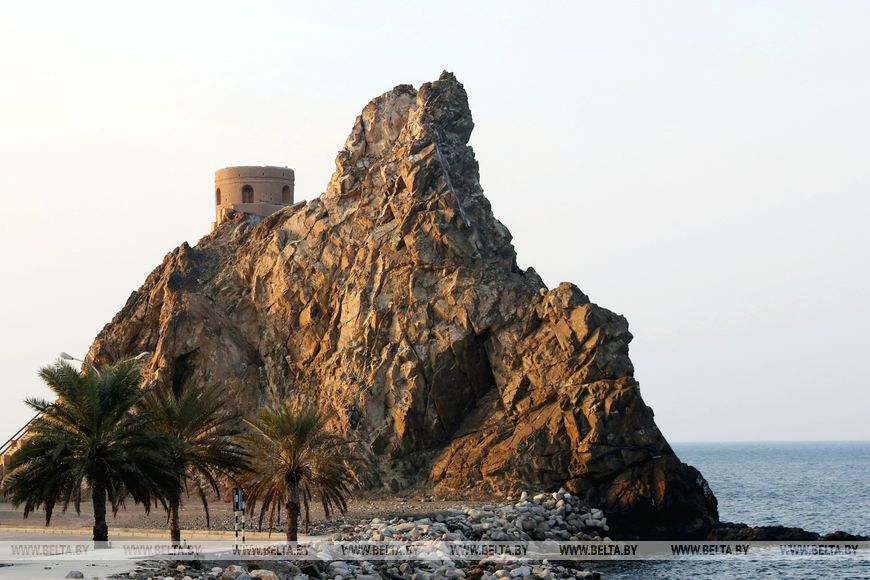
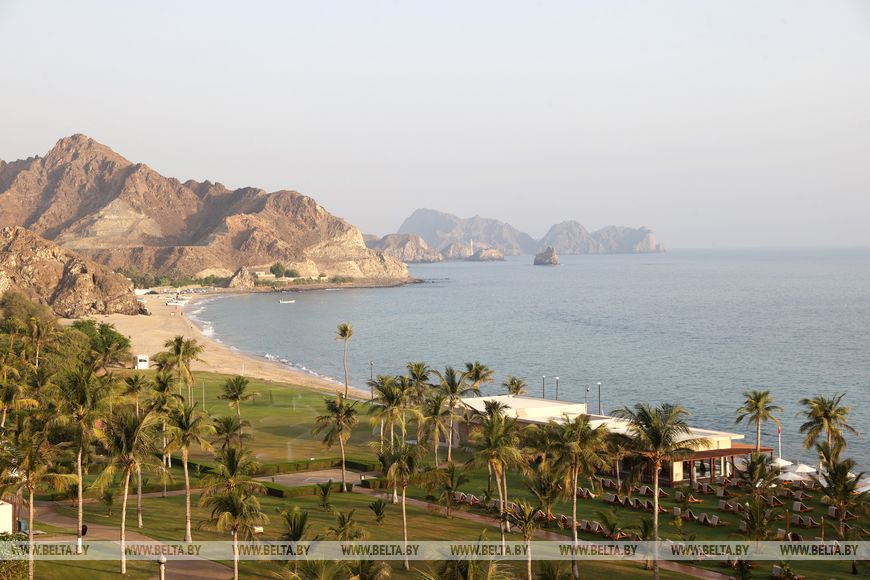
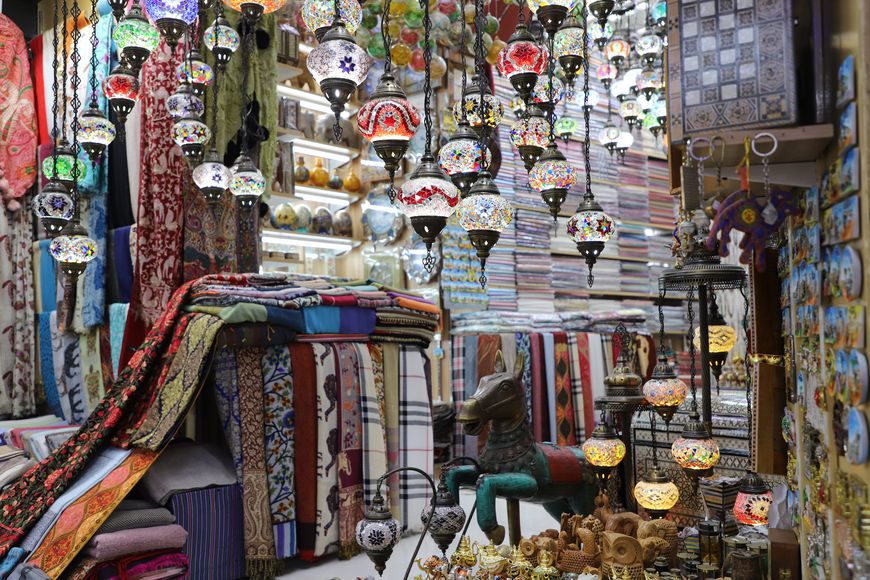
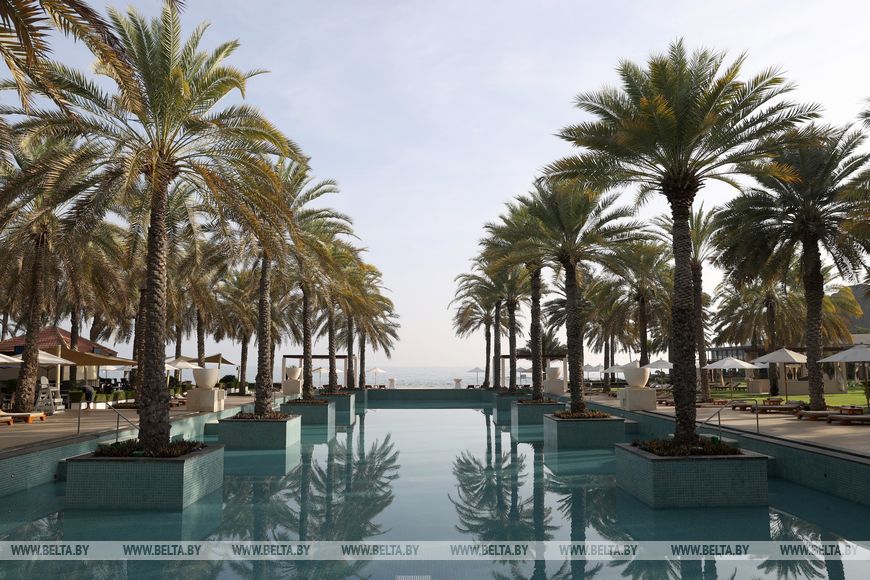
The modernization of Oman is
inextricably linked with the name of Qaboos bin Said. He took over the
Sultanate in 1970 by ousting his father, who was a reclusive and
ultra-conservative ruler. The new Sultan, then only 29 years old, announced his
intention to turn the country into a modern developed state. Oil had earlier
been found there, and in the late 1980s the Sultanate opened up to tourism.
“The Sultan fulfilled his promise: the Sultanate has progressed far ahead since
the 1970s, when the country had only 10 kilometers of paved roads, three
schools, and when subjects were dictated whom to marry, what radio to listen to
and whether you can wear sunglasses,” TASS said in 2020 after the Sultan's
death.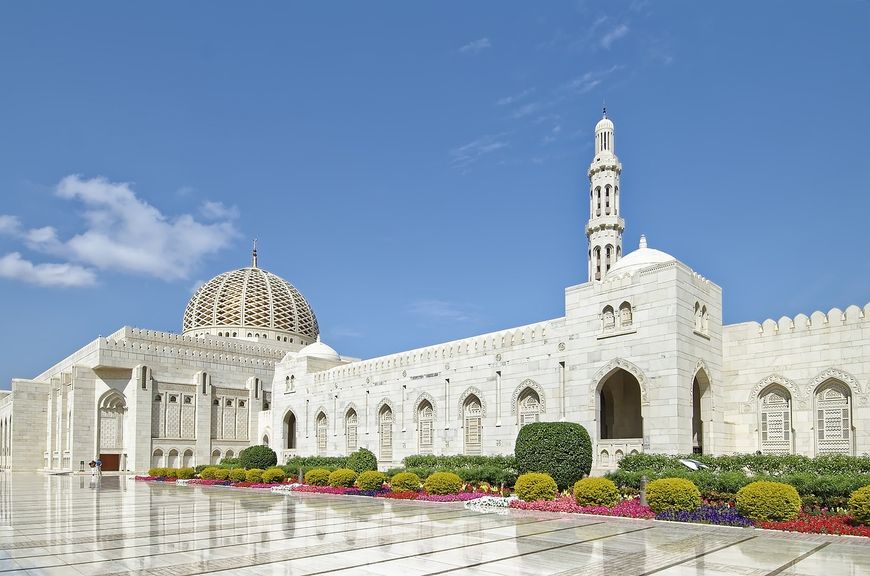 In half a century, feudal
slave-owning Oman with a colonial past has become a model of enlightened
monarchy and one of the most stable states in the Arab world. It ranks high in
the list of the safest countries in the world, in the Human Development Index,
and in the Global Well-Being Index. They say that if you accidentally drop your
wallet or any other valuable thing in Oman, it will be returned safe and sound.
In half a century, feudal
slave-owning Oman with a colonial past has become a model of enlightened
monarchy and one of the most stable states in the Arab world. It ranks high in
the list of the safest countries in the world, in the Human Development Index,
and in the Global Well-Being Index. They say that if you accidentally drop your
wallet or any other valuable thing in Oman, it will be returned safe and sound.
Another interesting fact is that Oman pays special attention to women's rights. Women have the right to vote, can own land, hold ministerial posts, and serve in the army. Women make up almost half of public servants. Women head companies and earn as much as men.
In foreign policy, Oman has always been officially neutral, but it has not been afraid to pursue a balanced multi-vector policy based on its interests, maintaining contacts and good-neighborly relations with all states.
The current Sultan of Oman, Haitham
bin Tariq Al Said, is a cousin of Sultan Qaboos. He headed the Ministry of
Culture and Development from 2002 to 2020. Once in power, he maintained
continuity in both foreign and domestic policies. He launched the Oman Vision
2040, a strategic plan for the comprehensive development of the country.
Five-year plans and other national sectoral strategies are developed on the
basis of this document. The document covers four key areas: people and society,
economy and development, governance and institutional effectiveness, and
environment and sustainable development. The program, among other things,
provides for improving food and water security through the use of renewable
resources and advanced technologies.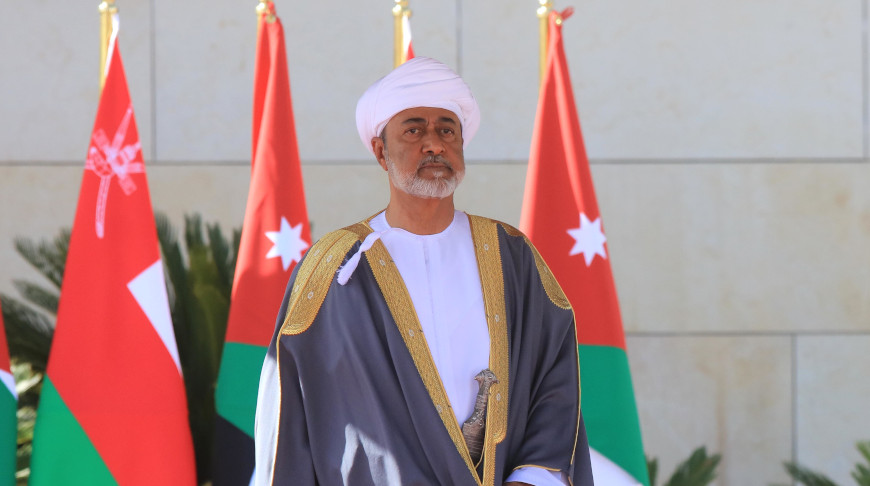
Special emphasis is placed on areas such as education, research, health care, and the creation of a labor market with a skilled and productive workforce.
Very interesting partners. How will Oman help Belarus in the region?
Belarus' positions in the Middle East are quite strong. Aleksandr Lukashenko has visited many countries on many occasions. But good friends are never too many, and Oman is just the kind of partner focused on pragmatic and long-term development of relations.
“Oman is an interesting country, open to us. It is a country with a balanced foreign policy, wonderful people and culture,” Belarusian Ambassador to Egypt and Oman Sergei Terentyev told journalists recently. “The residents of Oman are very good, respected, mobile business people. They are ready to work with us to promote our goods and services. This is both in their interest and our interest. Oman, like Belarus, is a part of the North-South transport corridor. Opportunities are great for us here.”
“Oman is a small country, but they are willing to engage in trade. They always say, 'Come to us and we will help you to South Africa, to Yemen, to South Asia.' We are already present there, of course, but why not? So the Omanis are very interesting partners,” the diplomat notes.
Drivers of growth. What areas hold the most promise for cooperation?
Export
Investment
Industrial cooperation
IT
Tourism
Education
Culture
Sport
Recently, congratulating the Sultan of Oman and the people on National Day, Aleksandr Lukashenko noted that the countries are confidently moving forward, deepening interaction in all areas.
“I count on your personal support in implementing the agreements on expanding trade and industrial partnership with a focus on joint production, developing transportation and logistics routes and investment projects, building up cooperation in information technology and humanitarian spheres,” the president emphasized.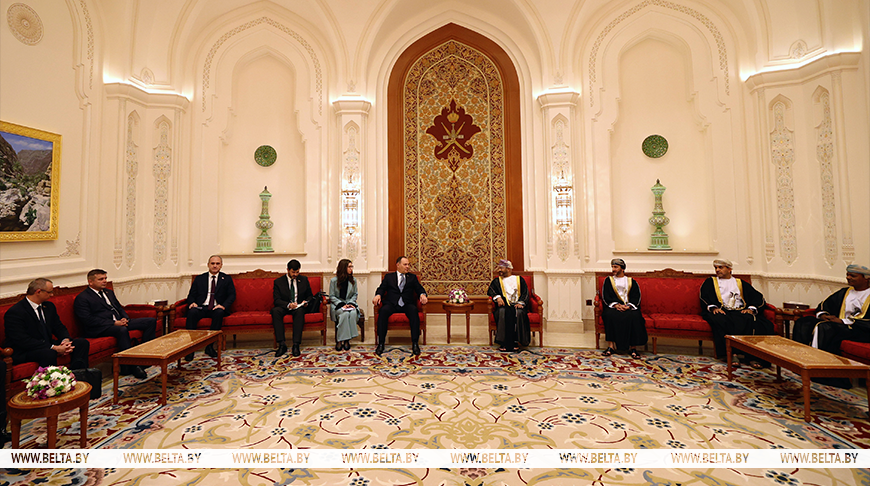 The president's visit to Oman was actually preceded by negotiations with Prime Minister Roman Golovchenko, who visited the country on 13-14 October 2024. As a result, the parties signed a solid package of documents, including in finance, antimonopoly regulation, and consumer protection. “We see a very great openness and readiness to develop relations with our country in all areas: politics inter-parliamentary cooperation, trade and economy. It is important that the development strategies of Belarus and Oman have areas in which we can complement each other,” Roman Golovchenko told reporters.
The president's visit to Oman was actually preceded by negotiations with Prime Minister Roman Golovchenko, who visited the country on 13-14 October 2024. As a result, the parties signed a solid package of documents, including in finance, antimonopoly regulation, and consumer protection. “We see a very great openness and readiness to develop relations with our country in all areas: politics inter-parliamentary cooperation, trade and economy. It is important that the development strategies of Belarus and Oman have areas in which we can complement each other,” Roman Golovchenko told reporters.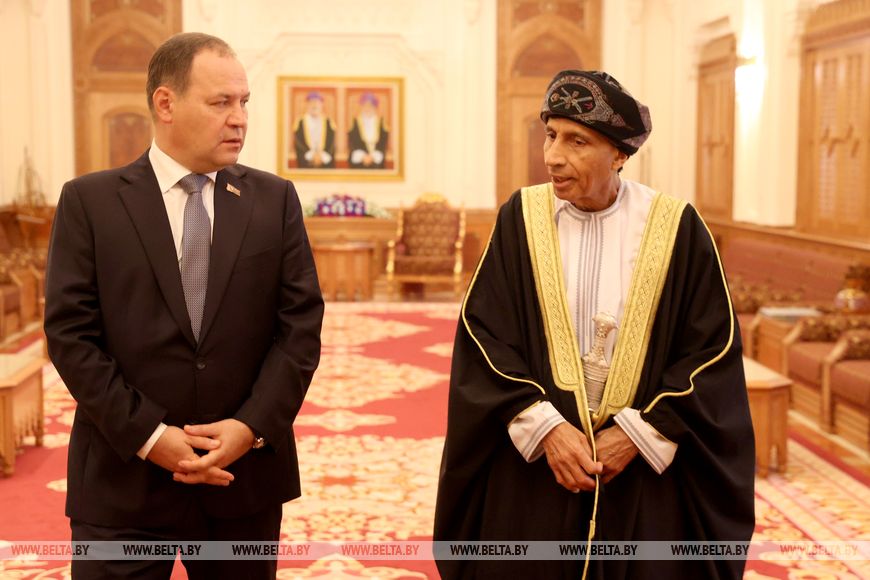
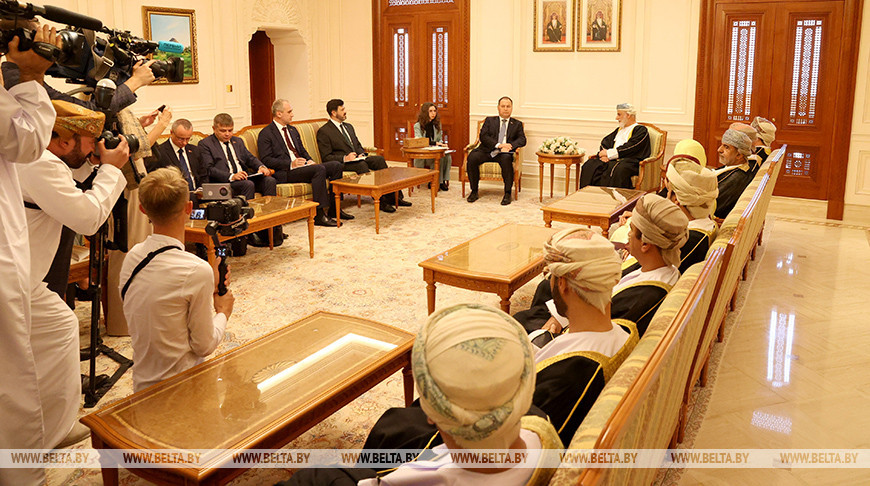
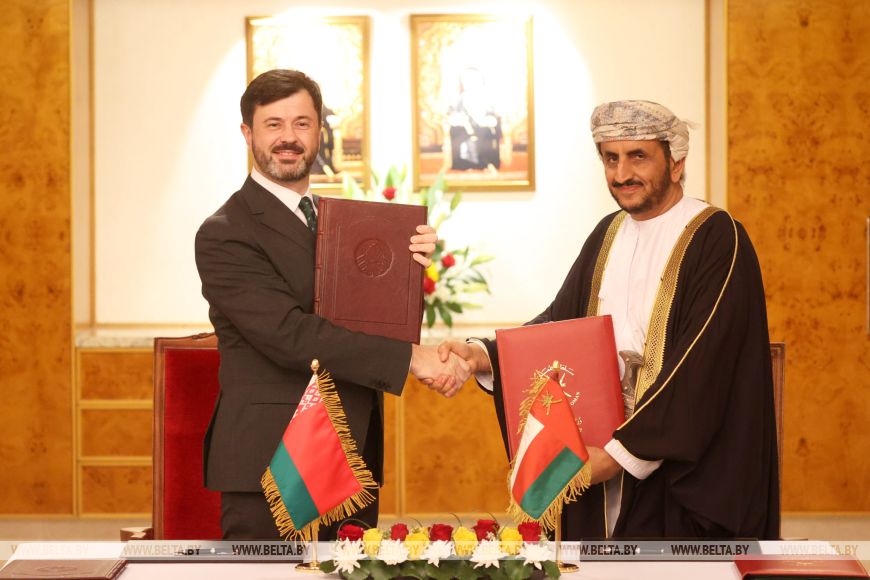 Export. Belarus is working to ramp up exports to Oman. In August Belarusian Minister of Antimonopoly Regulation and Trade Aleksei Bogdanov, who is the government’s point man for cooperation with the region, visited the country.
Export. Belarus is working to ramp up exports to Oman. In August Belarusian Minister of Antimonopoly Regulation and Trade Aleksei Bogdanov, who is the government’s point man for cooperation with the region, visited the country.
“There is a significant unrealized potential in mutual trade. We are committed to intensifying Belarusian-Omani cooperation in the whole range of areas,” Aleksei Bogdanov emphasized. “The points of growth of cooperation between our countries are primarily mutual supplies of goods. At the same time, we are committed to building up exports and establishing joint production enterprises in Oman”.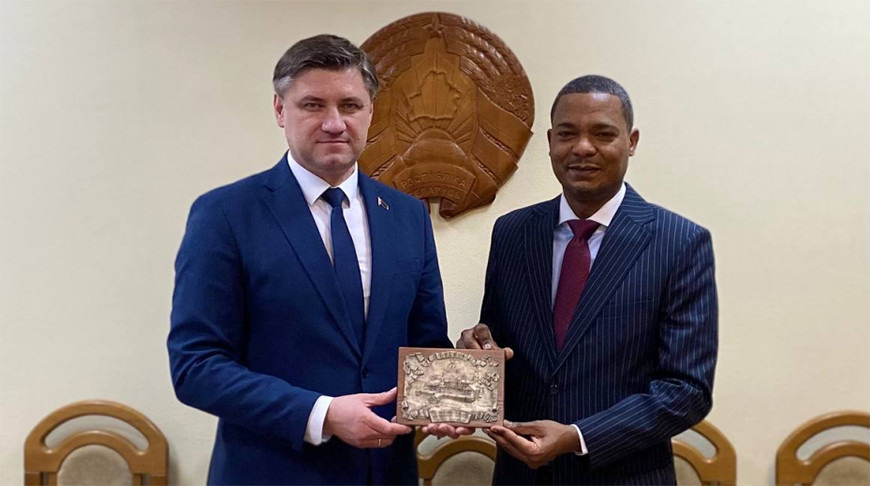 The Belarusian delegation visited the Sohar Port and Freezone, got familiar with the activities of the mining company Al-Tamman and Sanvira and the oil and gas company QQ.
The Belarusian delegation visited the Sohar Port and Freezone, got familiar with the activities of the mining company Al-Tamman and Sanvira and the oil and gas company QQ.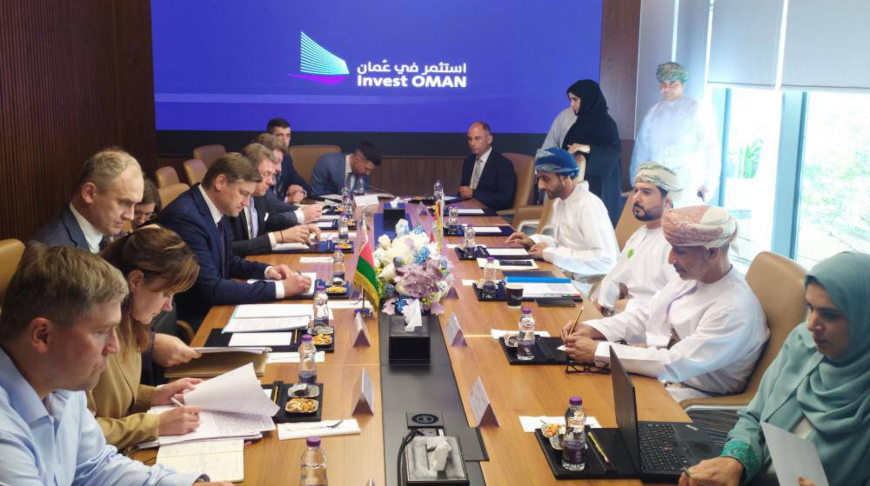 Earlier it was reported about supplies from Belarus to Oman of dairy products, elevator equipment, flat rolled iron or non-alloyed steel, polymer threads, paper and cardboard products, jams, fruit purees, radiators, valves for pipelines, measuring and control devices, skincare products.
Earlier it was reported about supplies from Belarus to Oman of dairy products, elevator equipment, flat rolled iron or non-alloyed steel, polymer threads, paper and cardboard products, jams, fruit purees, radiators, valves for pipelines, measuring and control devices, skincare products.
